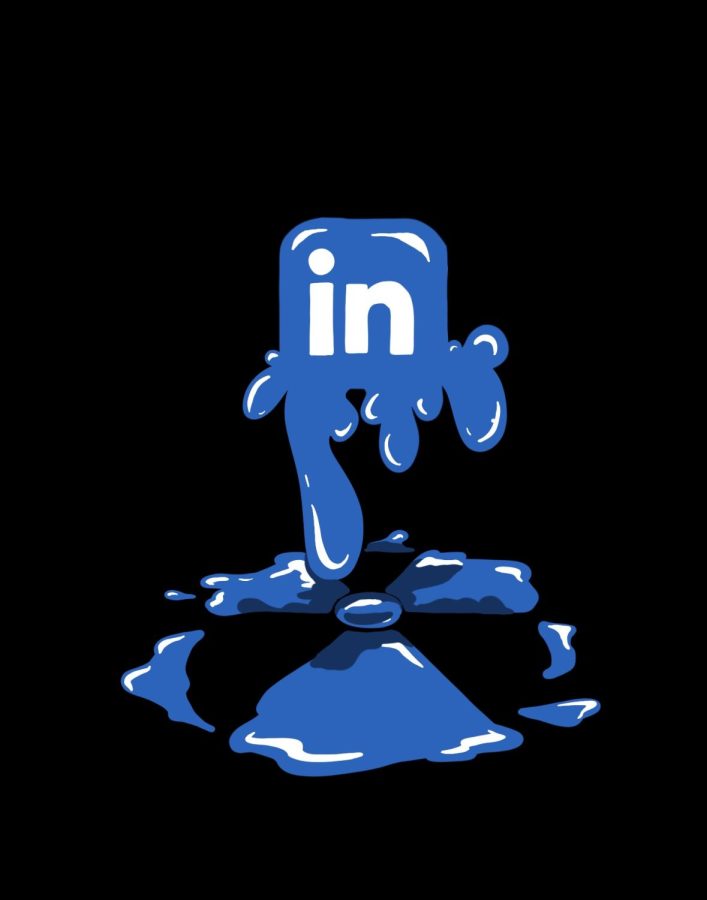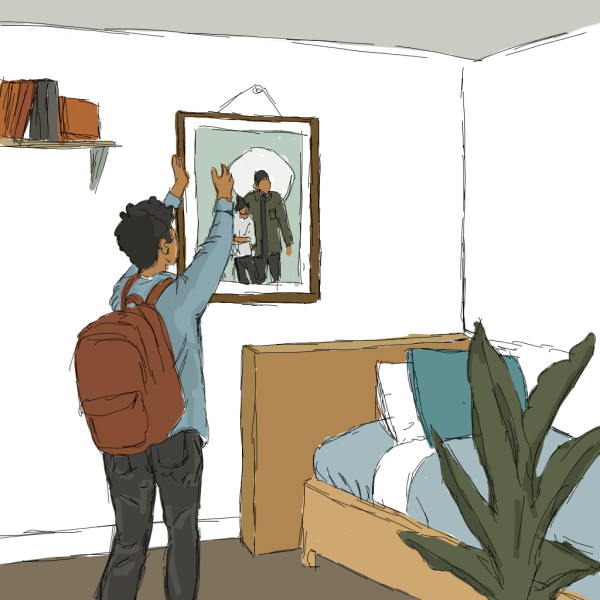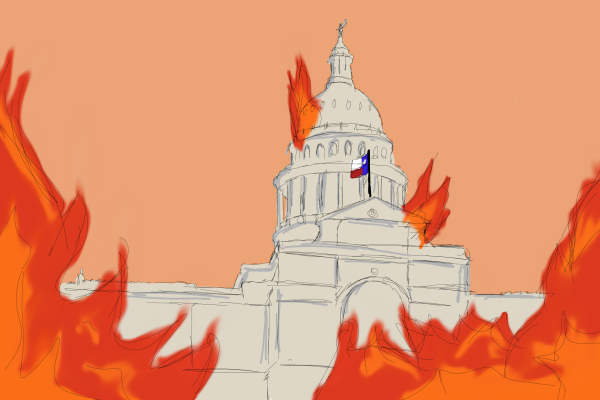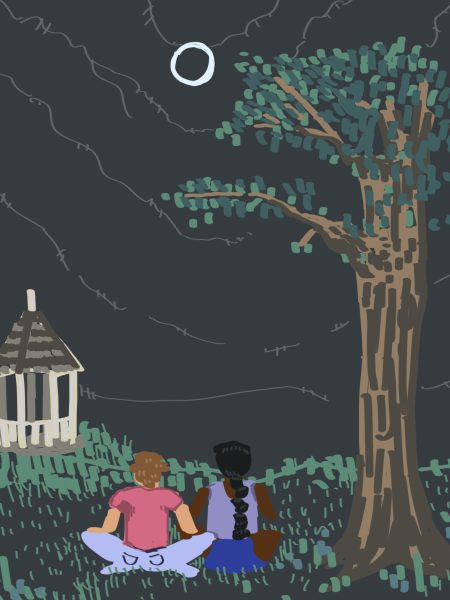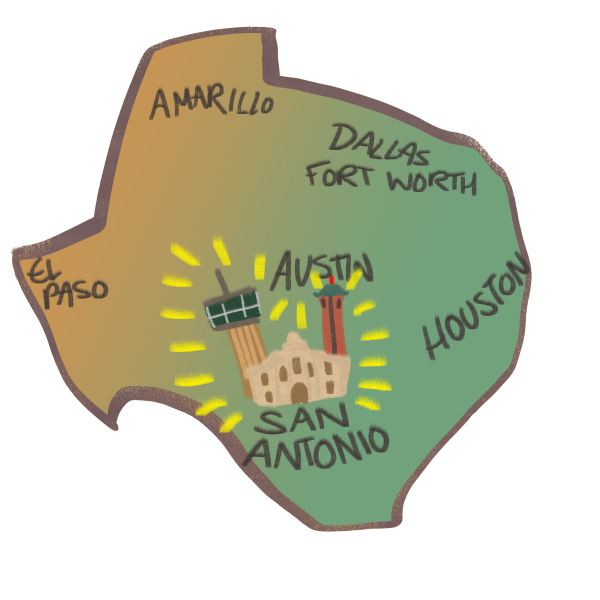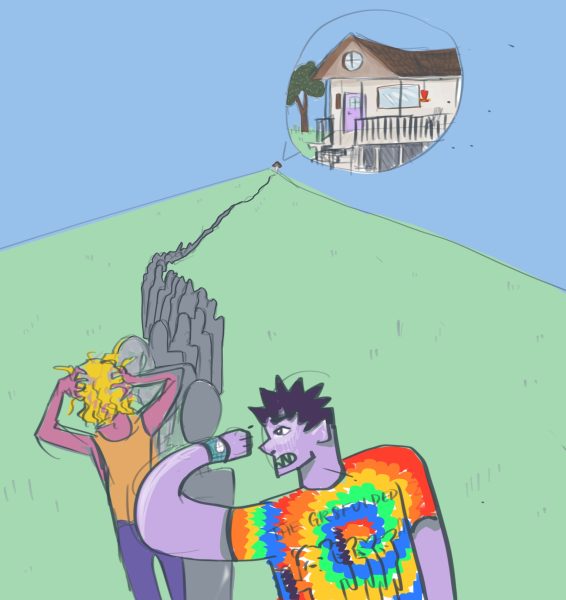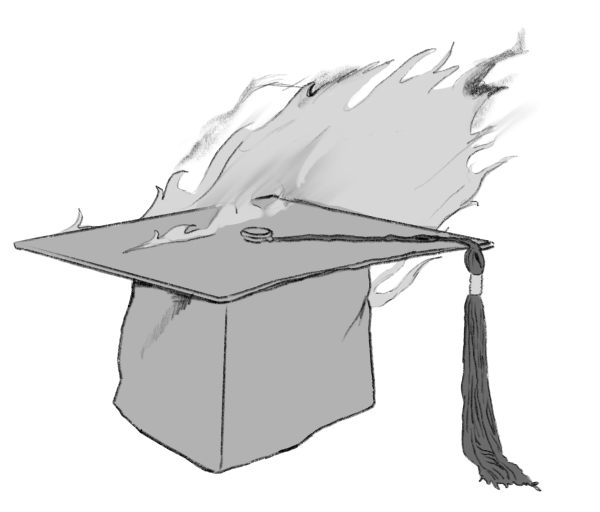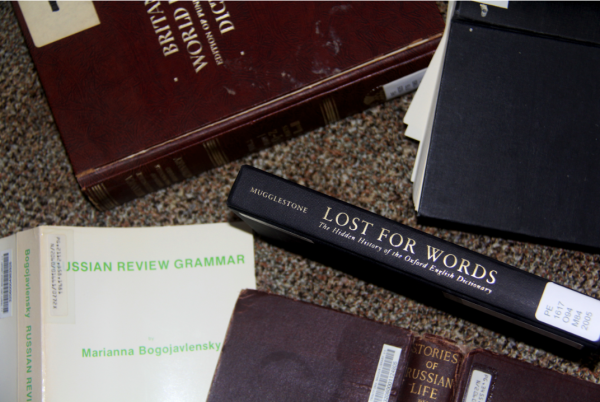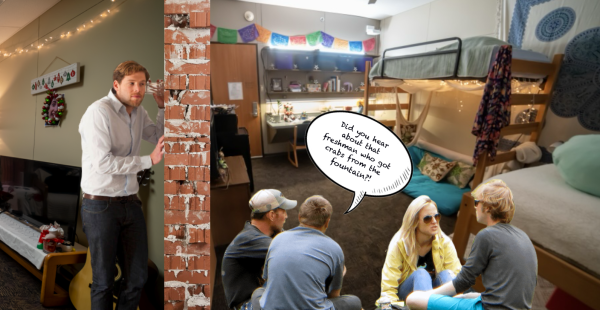The “scary good” sides to LinkedIn
If you’re a college student, you’ve probably heard of LinkedIn. It’s the world’s largest professional network and a place where one can find jobs or internships, strengthen professional relationships and learn the skills to succeed in future careers. But there’s a 0.00001% chance of landing that job and internship that you applied for.
Before I came to the U.S., I had no desire to participate in LinkedIn because it was this mysteriously bland platform for “adults.” It was the last resort for stalking someone online when they had no other social media presence. LinkedIn was an abstraction, but, before I knew it, it became an obligation.
It wouldn’t take long before college instilled in me an existential fear of “falling behind the pack,” whatever that means. Like many, I felt required to create a profile on a platform that I hardly understood during the Essential Information Technology course. Back then, I did not have anything relevant to add to a resume. Most people don’t, and that’s perfectly fine. LinkedIn, however, weaponizes toxic business culture to make us feel like failures.
While highly curated Instagram feeds and Snapchat stories make us compare our lives to those of our peers and compound social media’s negative impact on our mental health, LinkedIn elevates this impact to a terrifying level and somehow evades the umbrella of toxic social media scrutiny. In a capitalist society that emphasizes productivity above all else, success is the greatest measure of our value — yet, LinkedIn is designed to make us feel unsuccessful.
It would be extremely inappropriate to brag about your accomplishments to strangers or post about them on social media. On LinkedIn, however, bragging is the norm. I consider myself to be a silent achiever: if I do something that I’m proud of, is it not enough that I and people who are important to me celebrate it?
The platform allows users to find anyone’s resume online and makes it easy to search someone’s various career positions, which may invoke envy. LinkedIn is insidious because we feel guilty about our envy. As we scroll through our timelines, we see peers and strangers celebrate how they got our dream job. The worst part is that we can’t even be upset about another person’s accomplishments. Unlike other platforms where we can literally and figuratively see the filters on each image, LinkedIn remains largely objective and unfiltered, making us feel even worse about our perceived failures.
Our culture, however, delegitimizes LinkedIn’s negative impacts while remaining critical of other social media platforms. Author of “Facilitator with Access Consciousness.” Simone Milasas, once said, “Toxic productivity can make us feel like a failure if we’re not constantly ‘doing’ … you judge yourself every day for what you haven’t done, rather than looking at what you have accomplished.” Unfortunately, our culture of toxic productivity urges us to transform this judgment into diligence so that we work harder in the future. While we should have aspirations, LinkedIn makes the road to achieving our aspirations appear impossible, especially when you are a college student whose main priority is to earn a degree.
We applaud and encourage people to take a break from social media, but most of us can’t fathom stepping away from LinkedIn because doing so would threaten the most important part of our lives: our careers. Without them, we would have no purpose — at least, that’s what capitalism’s “rise and grind” mantra ingrains into us. In the same way that we start social media cleanses, perhaps it is time we do LinkedIn cleanses.
When looking at our peers’ myriad of internships, jobs, clubs and classes, it’s easy to feel like we are not doing enough. LinkedIn facilitates the visibility of these accomplishments and creates a bubble of hustlers who, through their perceived success, make us want to be among them. However, as students, we should prioritize our health and well-being over pursuing an abstract concept of success. After all, regardless of what you do, someone will always be better than you on LinkedIn.
Well, who cares? When it gets too stressful, know that there are other ways to connect with people. Your job will happen if you work hard for it one day. If people could survive without LinkedIn 20 years ago, so can you.
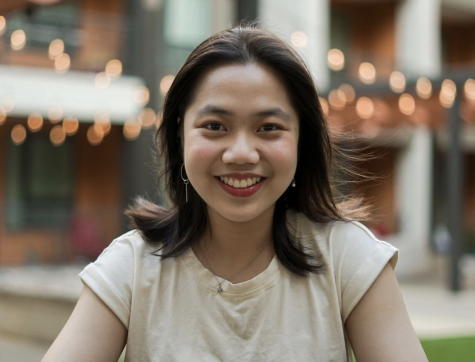
I am a native of Hanoi, Vietnam, and spent part of my childhood in Bangladesh and Cambodia. I am a senior majoring in Piano Performance and Communication,...

